As we step into 2025, businesses are on the cusp of a marketing revolution. The question is, are you ready to harness the power of AI tools to transform your marketing efforts?
The marketing landscape is changing rapidly, and AI marketing is at the forefront. No longer just for tech giants, AI tools are now accessible to businesses of all sizes, enabling them to save time, improve efficiency, and drive better results.
Our comprehensive guide will walk you through the various AI tools available for different aspects of marketing, from content creation to customer support, helping you stay competitive in the digital landscape.
Key Takeaways
- Discover how AI marketing tools can revolutionize your marketing strategy
- Learn about the different types of AI tools available for various marketing aspects
- Understand how to implement AI marketing solutions without requiring extensive technical knowledge
- Explore both free and paid AI marketing tools to suit your business needs
- Find out how AI marketing can save you time and improve efficiency
The Rise of AI in Marketing
As we step into 2025, the marketing landscape is undergoing a significant transformation, driven by the rapid adoption of Artificial Intelligence (AI). The way businesses approach marketing is changing, with a growing emphasis on data-driven strategies and personalized customer experiences.
What is AI Marketing?
AI marketing refers to the application of artificial intelligence technologies to marketing strategies and processes. It leverages machine learning, natural language processing, and data analysis to enhance marketing efforts, making them more efficient and effective. By automating routine tasks, AI marketing enables businesses to focus on more strategic initiatives.
For instance, AI can analyze vast amounts of customer data to identify patterns and preferences, allowing marketers to create highly targeted campaigns. This not only improves the customer experience but also increases the likelihood of conversion.
Why AI Marketing Matters in 2025
In 2025, marketing is all about data — information on competitors, market trends, and customer feedback. AI makes it possible to source and analyze this data quickly and at scale, a task that would be onerous to achieve manually. By adopting AI marketing, businesses can stay competitive in an increasingly data-driven marketplace.
AI marketing helps businesses make better decisions based on data rather than intuition or guesswork. As consumer expectations for personalized experiences continue to rise, the importance of AI marketing capabilities grows. Companies like Google, IBM, and Airbnb are already leveraging AI marketing tools to gain a competitive edge.
How AI is Transforming the Marketing Landscape
AI is transforming the marketing landscape by automating repetitive tasks, providing deeper insights, and enabling more personalized customer experiences. With AI, marketers can analyze customer behavior, predict future trends, and tailor their strategies accordingly.
The impact of AI on marketing is evident in its ability to process vast amounts of data, identify patterns, and make predictions. This enables businesses to optimize their marketing strategies, improve customer engagement, and ultimately drive revenue growth.
| Marketing Aspect | Traditional Approach | AI-Driven Approach |
|---|---|---|
| Data Analysis | Manual analysis, limited by human capacity | Automated analysis, scalable and faster |
| Customer Personalization | Segment-based personalization | Individual-level personalization using machine learning |
| Content Creation | Human-generated content, time-consuming | AI-assisted content creation, faster and more efficient |
Benefits of Implementing Easy AI Marketing
The benefits of using AI in marketing are multifaceted and significant. As businesses continue to navigate the complexities of the digital landscape, leveraging AI marketing tools can provide a substantial edge. These tools not only streamline processes but also enhance overall marketing efficiency.
Time and Resource Efficiency
One of the primary advantages of AI marketing is its ability to save time and optimize resource allocation. By automating repetitive tasks, marketing teams can focus on more strategic and creative work. For instance, AI can handle tasks such as data entry, email marketing, and social media posting, freeing up human resources for higher-value tasks.
According to a recent study, businesses that implement AI marketing tools can reduce their workload by up to 30%, allowing for more efficient use of human capital. This not only leads to cost savings but also improves overall productivity.
| Task | Manual Time | AI-Assisted Time |
|---|---|---|
| Data Entry | 5 hours | 1 hour |
| Email Marketing | 3 hours | 30 minutes |
| Social Media Posting | 2 hours | 15 minutes |
Enhanced Customer Personalization
AI marketing enables businesses to deliver highly personalized experiences to their customers. By analyzing individual behaviors and preferences, AI tools can help create tailored marketing messages that resonate with the target audience. This level of personalization can significantly enhance customer engagement and loyalty.
“Personalization is not just about addressing customers by their names; it’s about understanding their needs and delivering relevant content.”
For example, AI can analyze customer data to predict their preferences and suggest products or services that are likely to interest them. This not only improves the customer experience but also drives sales.
Data-Driven Decision Making
The use of AI in marketing also facilitates data-driven decision making. By analyzing vast amounts of data, AI tools can provide actionable insights that help marketers make informed decisions. This reduces the reliance on assumptions and guesswork, leading to more effective marketing strategies.
For instance, AI can analyze market trends, customer behavior, and campaign performance to identify areas of improvement. This enables marketers to adjust their strategies in real-time, optimizing their efforts for better results.
- Analyze market trends and customer behavior
- Identify areas of improvement in marketing campaigns
- Adjust strategies in real-time for optimal performance
Competitive Advantage in the Digital Age
In today’s competitive digital landscape, adopting AI marketing tools can provide a significant competitive advantage. Businesses that leverage AI can respond more quickly to market changes, innovate their marketing strategies, and deliver more personalized customer experiences.
By embracing AI marketing, businesses of all sizes can compete more effectively, even with limited resources. This levels the playing field, allowing smaller businesses to compete with larger corporations.
In conclusion, the benefits of implementing Easy AI Marketing are clear. From enhancing time and resource efficiency to driving data-driven decision making, AI marketing tools offer a wide range of advantages that can transform business operations.
AI Assistants and Chatbots for Marketing
AI assistants and chatbots are revolutionizing the marketing landscape by providing businesses with powerful tools to enhance customer engagement. These AI-powered solutions can handle customer inquiries, generate content, and provide valuable insights that help marketers make data-driven decisions.
By leveraging AI assistants and chatbots, businesses can significantly improve their customer support and customer service. These tools can provide immediate, personalized responses to customer inquiries, enhancing the overall experience and fostering brand loyalty.
ChatGPT
ChatGPT is a leading AI assistant that has gained widespread popularity in the marketing world. With its ability to generate creative content, answer customer questions, and assist with brainstorming marketing ideas, ChatGPT is a versatile tool for marketers.

Claude
Claude is another AI assistant that excels in coding tasks and provides a more natural conversational experience. Its ability to understand and respond to complex queries makes it an invaluable assistant for businesses looking to automate their customer support.

Gemini
Gemini is particularly noteworthy for its seamless integration with the Google ecosystem, making it a valuable platform for businesses already using Google Workspace. Its ability to understand and respond to complex queries enhances the overall marketing strategy.

DeepSeek and Grok
DeepSeek and Grok are AI assistants that offer unique features and capabilities for marketing purposes. DeepSeek’s search functionality feels more engaging and “sticky,” while its transparency builds a significant level of user trust. Grok, on the other hand, provides innovative solutions for marketers looking to stay ahead of the curve.
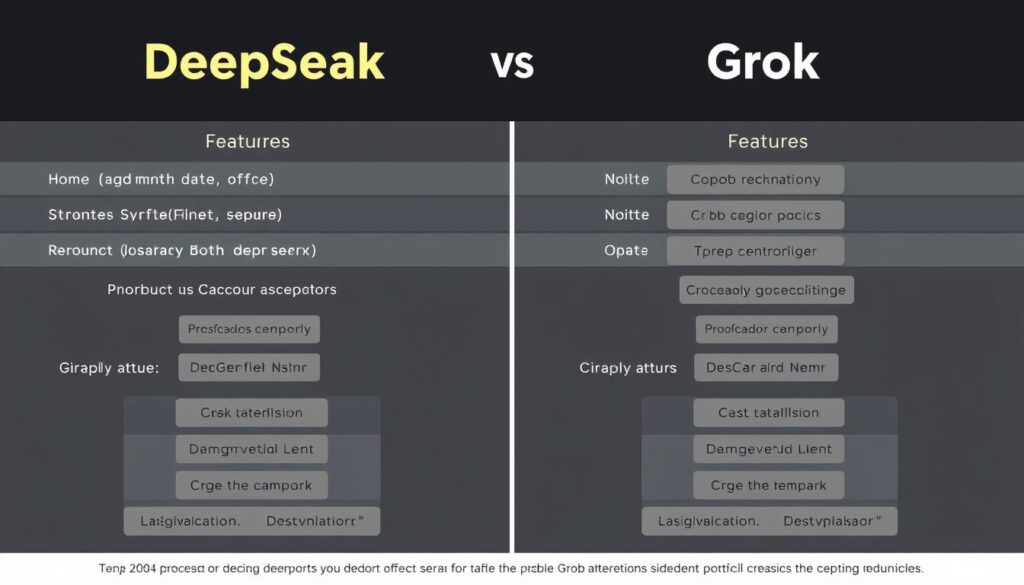
These AI assistants and chatbots are not only enhancing customer support and customer service but also providing businesses with the tools they need to succeed in a competitive marketing landscape. By leveraging their capabilities, marketers can create more personalized experiences, drive engagement, and ultimately boost conversions.
AI Content Creation Tools
AI content creation tools are transforming the marketing landscape by enabling businesses to produce high-quality content efficiently and consistently. These tools leverage artificial intelligence to help marketers generate engaging content, optimize it for search engines, and streamline their content production processes.
Jasper AI for Copywriting
Jasper AI is a powerful tool for generating various types of marketing content, including blog posts, social media captions, and email copy, in different tones and styles. Its versatility makes it an invaluable asset for marketers looking to maintain a consistent brand voice across multiple channels.

ContentShake AI for SEO Blog Writing
ContentShake AI combines the power of language models with SEO data from Semrush to help marketers create content that’s both engaging and optimized for search engines. This tool is particularly useful for SEO specialists looking to improve their content’s visibility and ranking.

Writer.com for Content Teams
Writer.com is a collaborative efficiency tool designed for marketing teams working together on content projects. It turbocharges traditional text editing features, making it easier for teams to maintain brand voice consistency and produce high-quality content efficiently.

Surfer SEO for Content Optimization
Surfer SEO is a content optimization tool that provides data-driven recommendations to help marketers improve their content’s search engine rankings. By analyzing top-ranking content, Surfer SEO offers insights into how to optimize your content for better visibility.

These AI content creation tools are essential resources for marketers looking to produce high-quality content efficiently and consistently. By integrating these tools into their content creation process, businesses can overcome common content marketing challenges, such as maintaining consistency and scaling production.
Easy AI Marketing for Social Media
AI-powered social media tools are transforming the way marketers manage their online presence, engage with their audience, and analyze their performance. These tools are not just enhancing existing strategies but are also opening up new avenues for creativity and efficiency in social media marketing.
Sprout Social AI Features
Sprout Social’s AI capabilities within its all-in-one platform accelerate business impact through social media. By strengthening collaboration between teams, businesses can put their best foot forward when engaging with audiences. Sprout Social combines AI with social listening, customer care, and analytics to provide a comprehensive social media management solution.
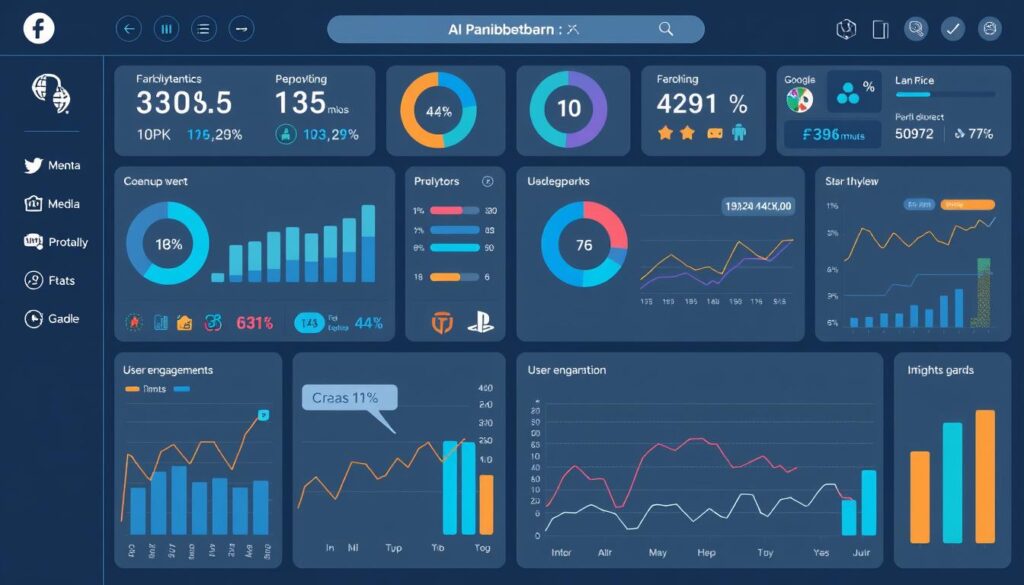
SocialPilot for Social Media Management
SocialPilot is a robust social media management and scheduling platform tailored for businesses and agencies. It allows users to bulk schedule up to 500 posts, assign tasks, and create automated reports. This tool is invaluable for marketers looking to streamline their content scheduling and performance analysis across multiple social media accounts.
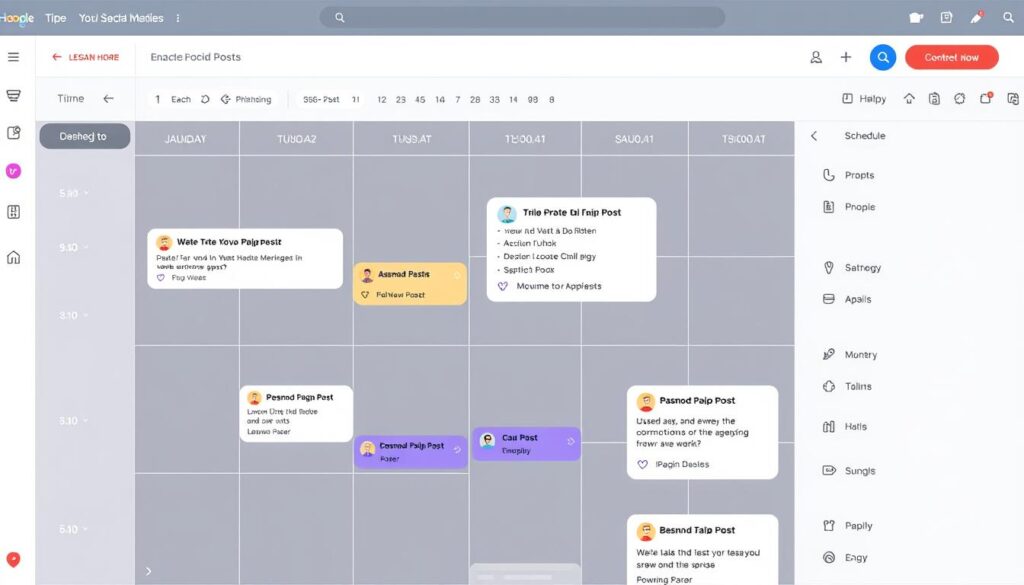
Loomly Social Media Platform
Loomly is a social media marketing platform designed to enhance publishing and planning efforts. It features a content calendar and library, along with a feed of post ideas based on trending topics and current events. Loomly helps marketers maintain a consistent posting schedule with engaging content, thereby improving their overall social media presence.
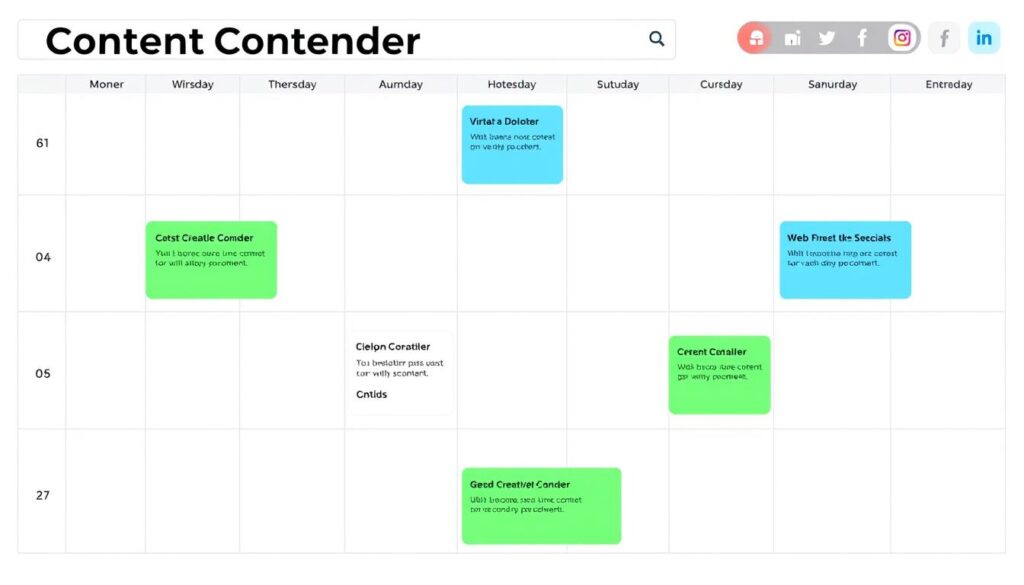
Agorapulse Social Media Solutions
Agorapulse provides various social media marketing solutions, including a unified inbox, scheduling, publishing, and reporting capabilities. This platform streamlines social media management by bringing all the necessary tools into one place, providing valuable insights into performance and helping businesses optimize their social media strategies.
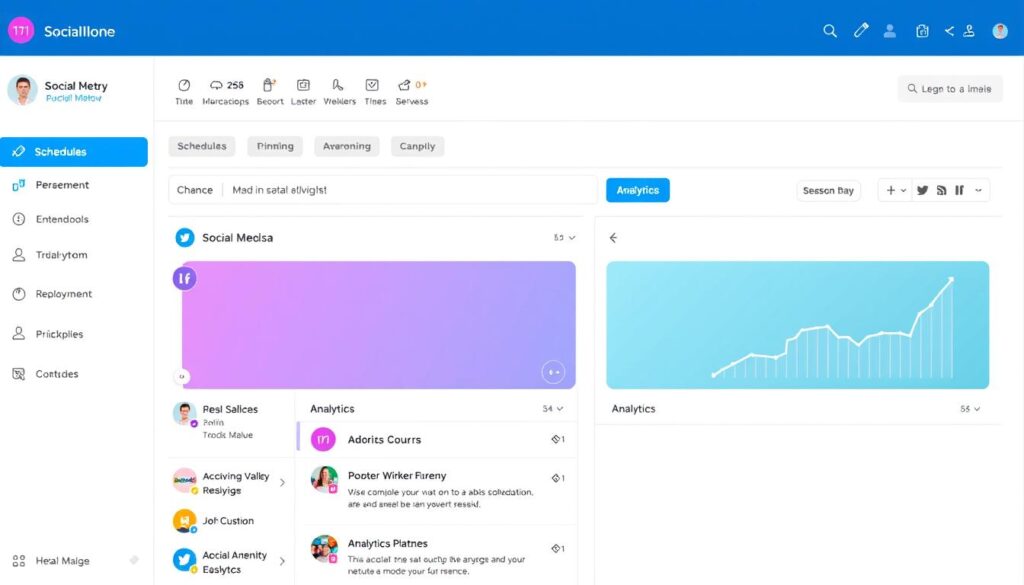
By leveraging these AI-powered social media tools, marketers can not only save time and improve engagement but also drive better results from their social media marketing efforts. The key is to identify the right tools that fit your business needs and integrate them into your existing marketing strategy.
AI Video Generation for Marketing
AI video generation tools are revolutionizing how marketers create content. These innovative solutions enable the production of professional-quality videos without the need for extensive production resources, making them a game-changer for marketing strategies.
Revolutionizing Video Content with Synthesia
Synthesia is a leading AI video generator that allows users to create realistic AI human avatar videos. This technology is particularly useful for creating training videos, product demonstrations, and personalized marketing messages.

Exploring Runway’s AI Video Creation Capabilities
Runway is a powerful AI video creation platform packed with features like text-to-video, image-to-video, Motion Brush, Camera Controls, and Inpainting. These features enable marketers to create engaging video content from simple prompts or existing images.

Simplifying Video Editing with Filmora
Filmora is a user-friendly video editor that stands out for its AI-powered editing tools. It makes video creation accessible even to marketers with limited video editing experience, streamlining the content creation process.

Optimizing Video Content for Social Media with OpusClip
OpusClip is a valuable tool for breaking down longer videos into short, shareable clips optimized for social media platforms. This helps marketers repurpose their video content, maximizing their reach and engagement.

These AI video generation tools not only save time and resources but also enable marketers to produce high-quality, engaging video content that resonates with their audiences. By leveraging these tools, marketers can enhance their marketing strategies, improve customer engagement, and stay ahead in the competitive digital landscape.
AI Image Generation for Marketing
Marketers are now leveraging AI image generation to produce high-quality, eye-catching visuals without needing professional design skills. This technology has revolutionized the way businesses approach content creation, enabling them to produce engaging marketing materials quickly and efficiently.
Revolutionary Image Generation with GPT-4o
GPT-4o has significantly advanced the field of AI image generation. Its ability to create realistic images of people and scenes has made it an invaluable tool for marketers. The quality of images generated by GPT-4o is notably higher than its predecessors, making it ideal for various marketing applications.

The use of GPT-4o in marketing content creation can enhance brand visuals, making them more appealing and engaging to the target audience.
Artistic Visuals with Midjourney
Midjourney has transformed AI image generation with its capability to produce highly detailed, artistic images from text prompts. This tool allows marketers to create unique visuals that can elevate their marketing campaigns and capture the audience’s attention.

By leveraging Midjourney, marketers can create consistent visual content across multiple platforms, enhancing their brand’s aesthetic.
Lexica Art for Realistic Marketing Images
Lexica Art is a high-quality AI image generator that creates realistic AI images suitable for various marketing needs, including blog thumbnails and social media posts. Its ability to generate high-quality visuals makes it a valuable tool for marketers looking to enhance their content.

Using Lexica Art, businesses can save time and resources while producing high-quality visuals that align with their brand aesthetics.
By adopting these AI image generation tools, marketers can not only enhance their content but also streamline their workflow, allowing for more efficient use of resources.
AI Tools for Email Marketing
AI-powered email marketing tools are redefining the standards of personalization and efficiency in digital marketing. By leveraging advanced algorithms and machine learning, these tools enable marketers to optimize their email campaigns, improve engagement, and drive conversions.
Seventh Sense
Seventh Sense is an innovative email marketing tool that utilizes behavior profiling to capture customers’ attention. It creates predictive models that analyze the best time and day to send email campaigns, thereby enhancing open rates and engagement.
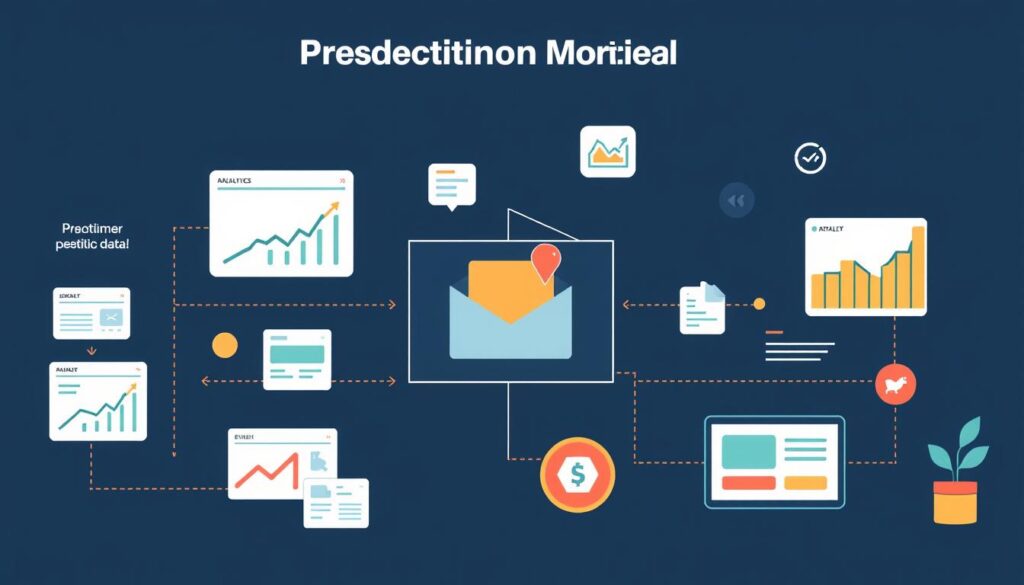
By understanding individual recipient behavior, Seventh Sense helps marketers tailor their email campaigns for maximum impact, leading to improved customer engagement and conversion rates.
Milled
Milled is one of the largest search engines for e-commerce emails and campaigns, offering access to over 36 million emails from more than 100,000 e-commerce brands. This vast repository provides marketers with valuable insights into competitor strategies and industry trends.

With Milled, marketers can stay ahead of the competition by understanding what works and what doesn’t in their industry, allowing for data-driven decision-making.
Reply.io
Reply.io is designed to enhance sales outreach and email marketing through automation and AI-driven tools. It offers a range of features including email automation, unlimited mailboxes, an email deliverability kit, and multichannel conditional sequences.

By streamlining email marketing processes and improving deliverability, Reply.io helps businesses save time while boosting the effectiveness of their campaigns.
In conclusion, AI tools like Seventh Sense, Milled, and Reply.io are transforming the email marketing landscape by providing marketers with the insights and automation needed to optimize their campaigns. By leveraging these tools, businesses can improve open rates, engagement, and conversion, ultimately driving growth and revenue.
AI Editing and Writing Improvement Tools
AI editing and writing improvement tools have become indispensable for marketers seeking to produce high-quality content efficiently in today’s competitive digital landscape. These tools not only refine the content but also streamline the creation process, allowing marketers to focus on strategy and creativity.
Enhancing Content Quality with Grammarly
Grammarly is a powerful AI-driven tool designed to improve writing quality through comprehensive editing capabilities. It offers grammar checking, plagiarism detection, and tone suggestions to ensure that the content is not only error-free but also engaging and appropriate for the target audience. Grammarly’s integration with popular platforms like Google Docs, Microsoft Word, and Gmail makes it a versatile tool for marketers.

Improving Readability with Hemingway Editor
The Hemingway Editor is another valuable tool that helps marketers enhance the readability of their content. By highlighting complex sentences, passive voice, and excessive adverb use, it enables writers to simplify their content and make it more accessible to their audience. This tool is particularly useful for creating clear, concise content that resonates with readers.
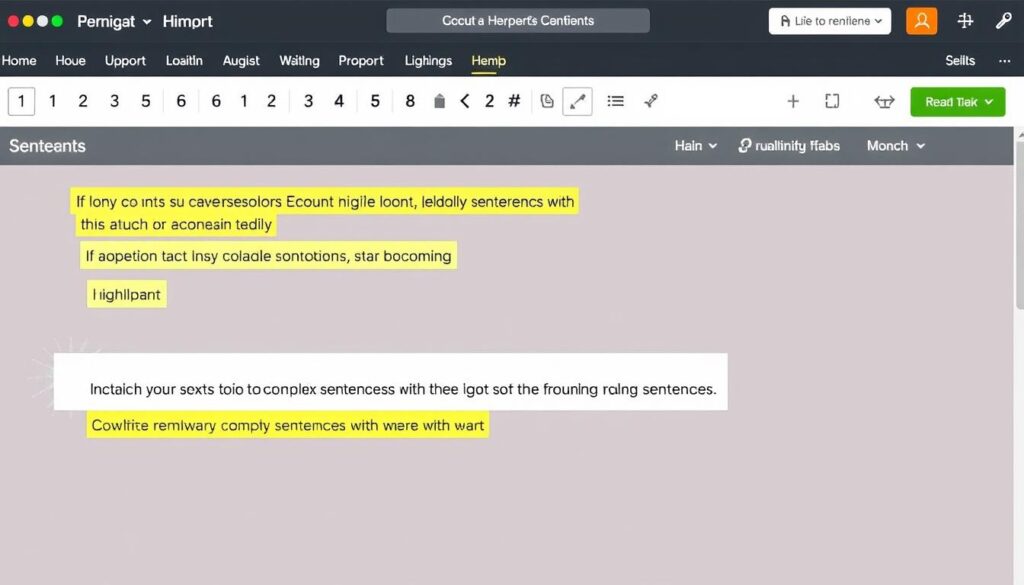
Optimizing SEO Content with Frase.io
Frase.io is an AI-driven marketing platform that specializes in SEO content creation and optimization. It analyzes top-ranking content and provides recommendations to improve the quality and relevance of the content. By using Frase.io, marketers can create content that is not only well-written but also optimized for search engines, thereby improving their online visibility.
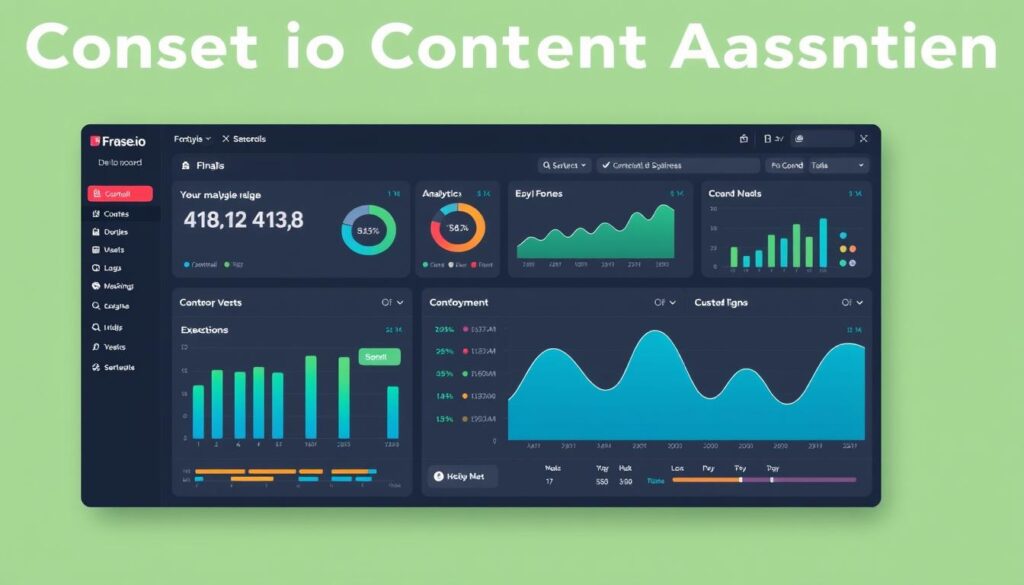
These AI editing and writing improvement tools are essential resources for marketers looking to produce polished, error-free content efficiently. By integrating these tools into their content creation process, marketers can enhance the quality of their content, save time on editing, and maintain consistency across different content pieces. Moreover, these tools are particularly beneficial for non-native English speakers and marketers who need to produce large volumes of content.
AI Marketing Automation Tools
In the realm of marketing, automation tools powered by AI are changing the game, offering unprecedented efficiency and personalization. These tools are designed to streamline workflows, reduce manual tasks, and improve overall marketing operations. By leveraging AI marketing automation tools, businesses can enhance their marketing strategies, improve customer engagement, and drive growth.
Zapier
Zapier is often referred to as the “Lego of tech stack and process integration.” It’s a pioneering AI agent platform that allows marketers to build connections and automate workflows between thousands of different systems. By using Zapier, businesses can save time, promote efficiency, reduce repetitive tasks, and achieve cost savings. Zapier’s extensive integration capabilities enable marketers to connect different tools and automate workflows without requiring coding knowledge.
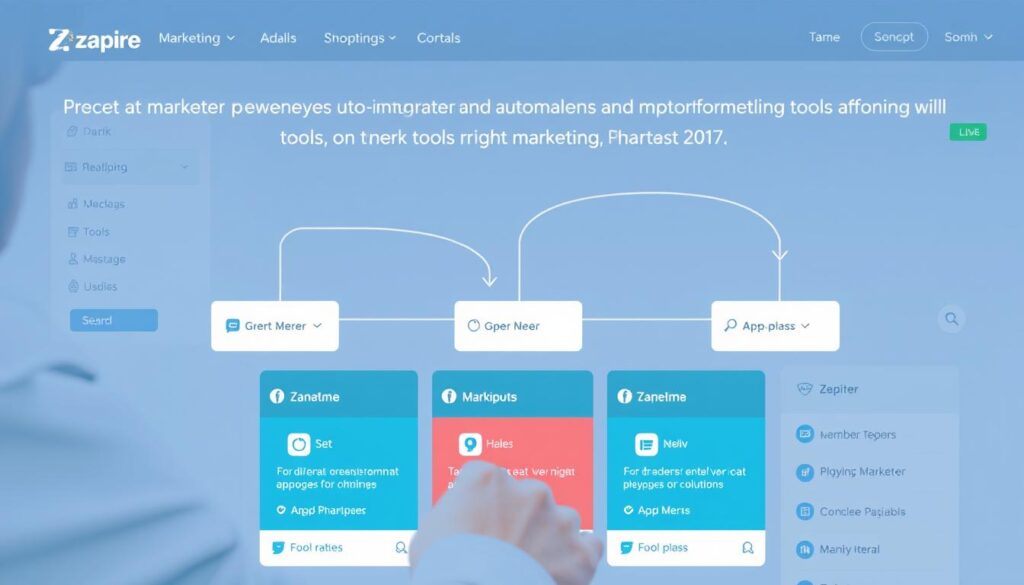
Gumloop
Gumloop is an innovative tool that lets marketers connect any Large Language Model (LLM) to their internal tools and workflows without writing a single line of code. This capability enables businesses to create sophisticated AI-powered workflows that integrate with their existing tech stack. By combining the power of language models with automation, Gumloop empowers marketers to streamline complex tasks and enhance their marketing operations.

Salesforce
Salesforce is a comprehensive customer relationship management (CRM) software that specializes in sales, customer service, e-commerce, analytics, and marketing automation. Its marketing automation features allow businesses to automate customer journeys and personalize marketing messages. By leveraging Salesforce’s capabilities, marketers can create targeted campaigns, improve customer engagement, and drive conversions.

AI marketing automation tools like Zapier, Gumloop, and Salesforce are transforming the marketing landscape. By automating repetitive tasks, these tools enable marketers to focus on strategic initiatives, improve efficiency, and drive business growth. Whether it’s lead nurturing, data entry, or campaign management, AI marketing automation tools can help marketers achieve their goals more effectively.
For small marketing teams looking to scale their efforts without adding headcount, these tools are particularly valuable. They offer a way to maintain consistency, reduce errors, and improve overall marketing performance. As the marketing landscape continues to evolve, embracing AI marketing automation tools will be crucial for businesses seeking to stay ahead of the curve.
AI for Customer Support and Engagement
AI-powered tools are transforming customer support and engagement, offering businesses new ways to connect with their audience. These tools can improve response times, provide 24/7 assistance, and enhance the overall customer experience.
Tidio
Tidio is an AI-powered chatbot platform designed to help businesses engage with website visitors, answer common questions, and generate leads through conversational interactions. By leveraging Tidio, companies can improve web conversions, reduce churn rates, and build customer loyalty.
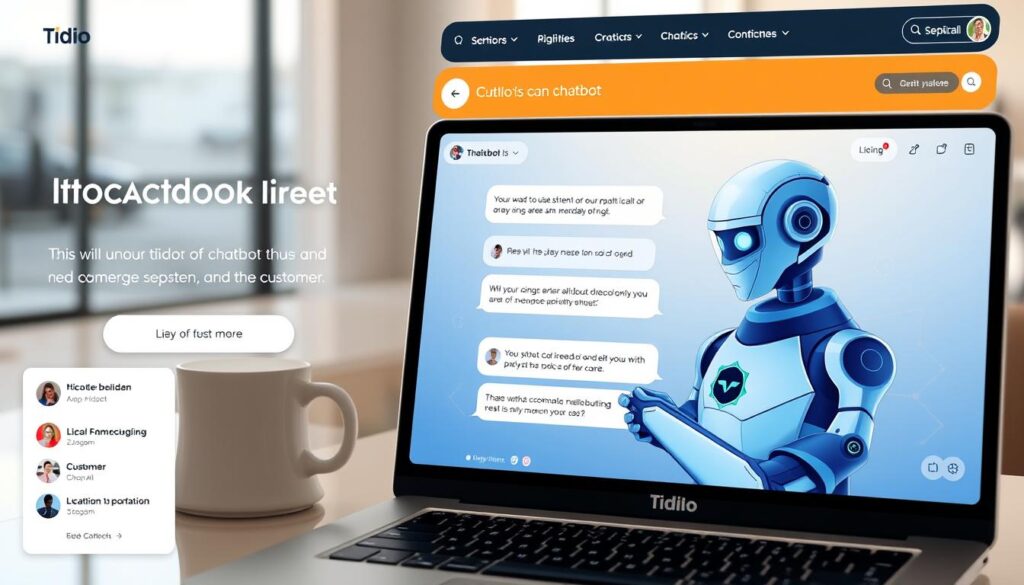
Chatfuel
Chatfuel enables businesses to create sophisticated chatbots for various platforms, highlighting its ease of use and effectiveness for customer support. With Chatfuel, companies can automate customer support, provide personalized recommendations, and streamline communication.
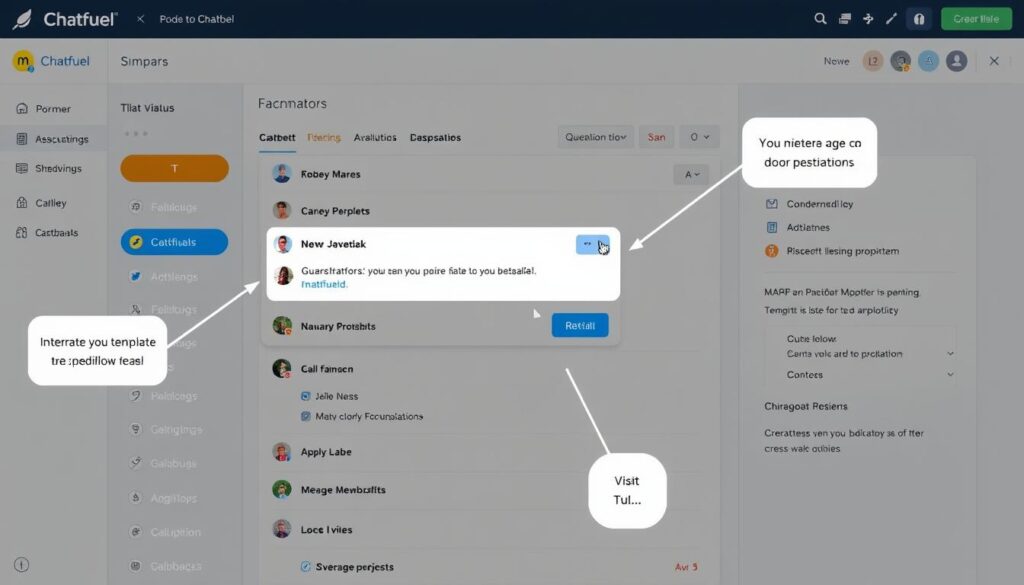
Userbot.ai
Userbot.ai offers conversation management features that help businesses handle customer inquiries efficiently across multiple channels. This tool enables companies to unify their customer support operations, ensuring a seamless experience for their customers.
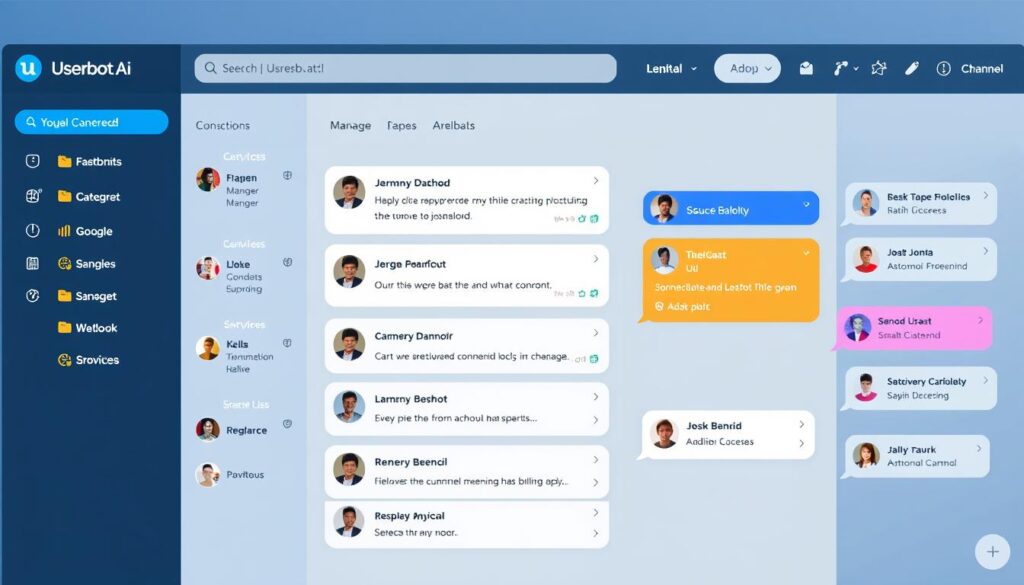
By implementing these AI tools, businesses can not only enhance their customer support capabilities but also collect valuable customer data. This data can be used to improve products, services, and marketing strategies, ultimately driving business growth and customer satisfaction.
The scalability of AI customer support tools allows businesses to handle increased customer inquiries without proportionally increasing their support staff. This efficiency is crucial for businesses looking to expand their customer base while maintaining high levels of customer satisfaction.
AI for Data Analysis and Insights
The power of AI in data analysis is transforming the marketing landscape in unprecedented ways. By leveraging AI tools, businesses can gain deeper insights into customer behavior, market trends, and campaign performance, ultimately making more informed decisions.
Brand24: Revolutionizing Media Monitoring
Brand24 is a powerful AI-driven media monitoring tool that helps businesses track mentions, analyze sentiment, and identify influencers across various online platforms. By using Brand24, companies can stay on top of their brand reputation and respond promptly to customer feedback.
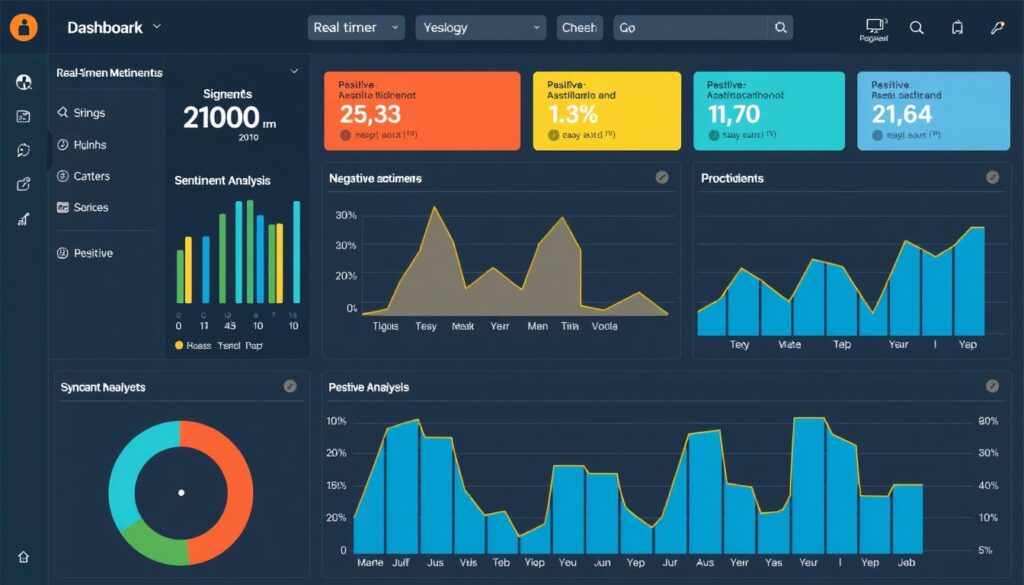
FullStory: Unlocking Digital Experiences
FullStory uses AI to track and analyze user journeys on websites, providing valuable insights into user behavior and potential areas for improvement. By understanding how users interact with their digital platforms, businesses can optimize their websites for better user experiences and conversion rates.
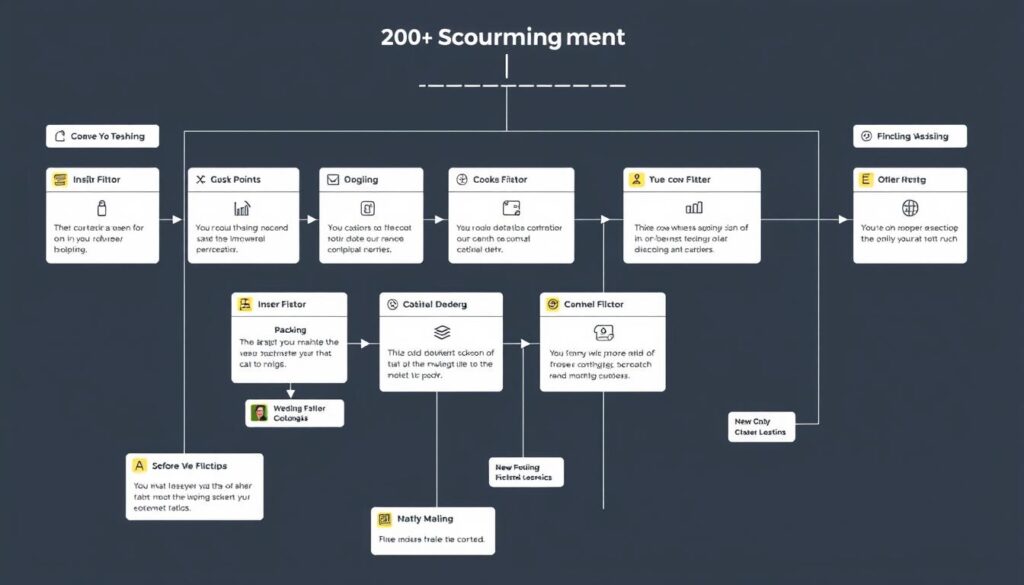
Algolia: Enhancing Search and Recommendations
Algolia’s search and recommendation APIs are designed to deliver personalized experiences based on user behavior and preferences. By integrating Algolia into their platforms, businesses can significantly enhance user engagement and drive sales through more relevant search results and product recommendations.
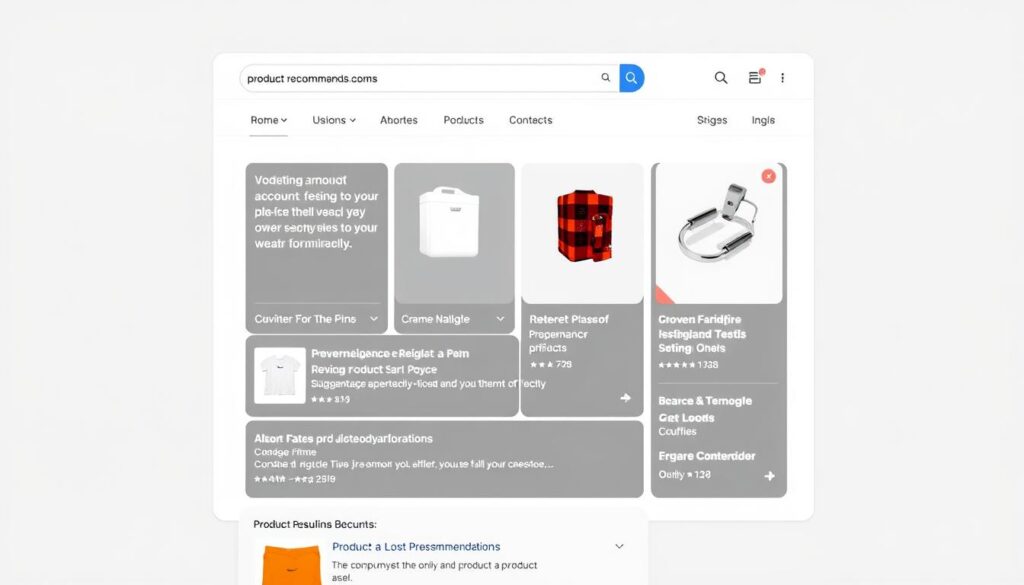
These AI tools for data analysis and insights are essential resources for marketers looking to understand their customers better and stay ahead in the competitive market. By leveraging the capabilities of Brand24, FullStory, and Algolia, businesses can gather actionable insights that inform their marketing strategies and drive business growth.
AI for Digital Advertising
The digital advertising landscape is rapidly evolving, and AI is at the forefront of this transformation. As marketers, we’re constantly looking for ways to optimize ad spend, improve targeting, and enhance overall campaign performance. AI tools for digital advertising offer solutions to these challenges, providing advanced automation and data-driven insights to maximize ROI.
Albert.ai
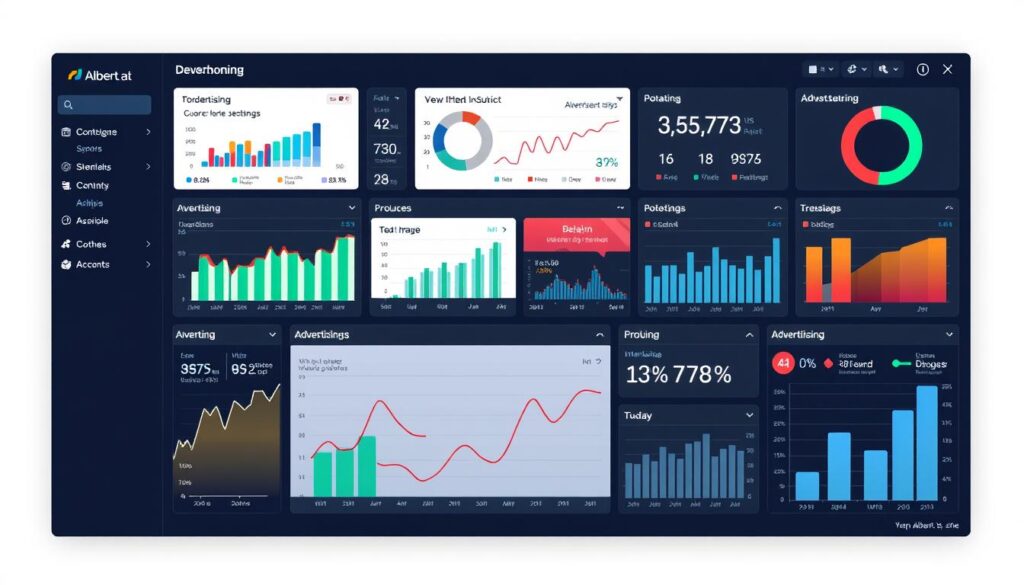
Albert.ai is a cutting-edge AI marketing tool that acts as a “digital ally” for businesses. It can self-optimize across multiple channels, enhancing digital advertising performance through advanced automation. From keyword research to optimizing ad spend and audience engagement, Albert.ai handles various aspects of digital advertising. By leveraging AI, marketers can improve campaign performance, reduce manual labor, and make data-driven decisions.
One of the key benefits of using Albert.ai is its ability to optimize ad spend across different channels. By analyzing data and performance metrics, Albert.ai can allocate budget more effectively, ensuring that ads are seen by the right people at the right time. This not only improves campaign ROI but also enhances overall marketing efficiency.
Smartly.io
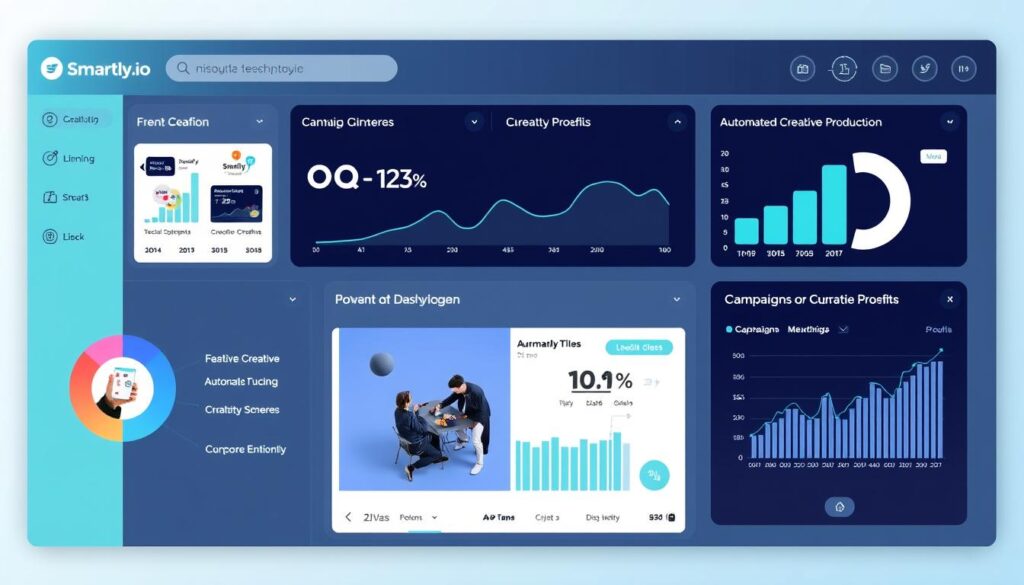
Smartly.io is an AI-powered advertising platform designed to enhance social media marketing. It offers a comprehensive suite of tools for creative production, media buying, and intelligence gathering. By automating creative production assets and optimizing cross-channel social media campaigns, Smartly.io helps businesses reach their target audiences more effectively.
With Smartly.io, marketers can conduct social analysis, predict future performance trends, and make informed decisions about budget allocation and campaign strategy. This level of insight and automation enables businesses to run complex, multi-channel advertising campaigns with greater ease and efficiency, ultimately driving better results and improving advertising ROI.
How to Implement Easy AI Marketing in Your Business
The key to unlocking your business full potential lies in implementing Easy AI Marketing. As marketing continues to evolve, leveraging AI can significantly enhance your marketing efforts, making them more efficient and effective.
To successfully integrate AI into your business marketing strategy, you need to follow a structured approach. This involves several critical steps that will ensure a smooth transition and maximize the benefits of AI tools.
Assessing Your Marketing Needs
The first step in implementing Easy AI Marketing is to assess your current marketing needs and challenges. Identify areas where AI can make the most significant impact, such as content creation, customer support, or data analysis. This assessment will help you understand where to allocate your resources most effectively.
By pinpointing the specific tasks that consume the most time and resources, you can determine how AI can help streamline your marketing process. This step is crucial in ensuring that your AI implementation is targeted and effective.
Choosing the Right AI Tools
Once you’ve identified your needs, the next step is to choose the right AI tools for your business. Consider factors such as your business size, budget, marketing goals, and existing tech stack. Selecting tools that align with your overall strategy is vital for successful integration.
Popular AI tools for marketing include those for content creation, customer engagement, and data analysis. Evaluate these tools based on their features, ease of use, and compatibility with your existing systems.
Integration with Existing Systems
Seamless integration with your existing systems is crucial for maximizing the value of AI implementations. Ensure that the AI tools you choose can integrate with your current marketing tech stack. This will help maintain a smooth workflow and prevent disruptions to your marketing efforts.
Training Your Team
Training your team to use AI tools effectively is essential for successful implementation. Provide ongoing education and support to help them understand the benefits and capabilities of these tools. This will enable your team to leverage AI to its full potential, enhancing your overall marketing strategy.
By following these steps and maintaining a focus on your marketing goals, you can successfully implement Easy AI Marketing in your business. This will not only improve your marketing efficiency but also drive better results over time.
Overcoming Challenges in AI Marketing Adoption
As companies embark on their AI marketing journey, they encounter various hurdles that can impact their overall marketing effectiveness. The adoption of AI marketing tools is not without its challenges, but with the right strategies, businesses can overcome these obstacles and maximize their return on investment.
Addressing Common Concerns
One of the primary challenges businesses face when adopting AI marketing tools is addressing common concerns and skepticism within the organization. Cost, complexity, and perceived threats to jobs are among the top concerns. To address these concerns, it’s essential to demonstrate the ROI of AI marketing tools and showcase successful case studies. For instance, a company that implemented AI-powered chatbots saw a significant reduction in customer support queries, allowing human support agents to focus on more complex issues.
To alleviate these concerns, businesses should:
- Provide clear explanations of how AI marketing tools work and their benefits
- Offer training and support to help employees understand and effectively use these tools
- Highlight the potential for AI to augment human capabilities, rather than replace them
Managing the Learning Curve
Another significant challenge is managing the learning curve associated with new AI tools. To overcome this, businesses should invest in comprehensive training programs for their teams. This includes providing hands-on experience with the tools, as well as establishing best practices for their use. For example, a marketing team might start by using AI tools for simple tasks, such as data analysis, before moving on to more complex applications like content generation.
A well-structured training program should cover:
- The capabilities and limitations of the AI tools being used
- Best practices for integrating AI into existing workflows
- Strategies for monitoring and evaluating the effectiveness of AI marketing initiatives
Balancing AI and Human Touch
Finding the right balance between AI automation and human creativity is crucial for successful AI marketing adoption. While AI can handle repetitive and data-intensive tasks, human oversight and creativity are essential for developing effective marketing strategies and maintaining brand authenticity.
To achieve this balance, businesses should consider the following:
| Task | AI Suitability | Human Involvement |
|---|---|---|
| Data Analysis | High | Low |
| Content Generation | Medium | High |
| Customer Support | Medium | High |
| Strategy Development | Low | High |
By understanding the strengths and limitations of both AI and human capabilities, businesses can create effective marketing strategies that leverage the best of both worlds. It’s also important to maintain brand voice and authenticity when using AI-generated content, ensuring that it aligns with the company’s overall marketing goals and values.

In conclusion, overcoming the challenges in AI marketing adoption requires a multifaceted approach that addresses common concerns, manages the learning curve, and balances AI automation with human touch. By doing so, businesses can unlock the full potential of AI marketing tools and drive long-term success.
Future Trends in Easy AI Marketing
Emerging trends in AI are expected to reshape the marketing landscape, providing businesses with unprecedented opportunities for growth. As AI technology continues to evolve, it’s crucial for marketers to stay ahead of the curve and understand how these advancements will impact their strategies.
Emerging Technologies
The marketing world is on the brink of a revolution, driven by emerging AI technologies such as multimodal AI, predictive analytics, and hyper-personalization. Multimodal AI, for instance, allows for the integration of various data types, including text, images, and voice, to create more comprehensive and engaging customer experiences. According to a recent study, businesses that adopt multimodal AI see a significant increase in customer engagement, with some reporting up to a 30% boost in interaction rates.
Predictive analytics is another area where AI is making significant strides. By analyzing vast amounts of data, AI can predict customer behavior with increasing accuracy, allowing businesses to tailor their marketing strategies more effectively. As Forbes notes, “Predictive analytics is becoming a game-changer in marketing, enabling businesses to anticipate customer needs and stay ahead of the competition.”
Predictions for the Next Five Years
Looking ahead to the next five years, we can expect AI marketing to become even more sophisticated. Voice search and conversational AI are likely to play a larger role in marketing strategies, as consumers increasingly rely on voice assistants and chatbots to interact with brands. This shift will require businesses to adapt their content and SEO strategies to accommodate voice search queries.
Moreover, AI is expected to enable more personalized and anticipatory experiences for customers. By leveraging advanced data analysis, businesses will be able to predict and respond to customer needs before they even arise. As
“The future of marketing lies in creating seamless, personalized experiences that anticipate customer needs,”
says a leading marketing expert.
Preparing Your Business for the AI Future
To prepare for these changes, businesses should start by investing in their data infrastructure. This includes implementing robust data collection and analysis systems that can support AI-driven marketing strategies. Additionally, developing AI literacy among marketing teams will be crucial for effectively leveraging these new technologies.
Businesses should also be aware of the growing importance of ethical AI and transparency in marketing practices. As AI becomes more pervasive, consumers are likely to demand greater transparency about how their data is being used. By prioritizing ethical AI practices, businesses can build trust with their customers and maintain a competitive edge.
Finally, the democratization of AI tools is set to level the playing field between small businesses and large corporations. By providing access to powerful AI technologies, small businesses will be able to compete more effectively in the market, creating new opportunities for growth and innovation.
Conclusion
With the rise of AI marketing tools, businesses of all sizes can now leverage technology to streamline their marketing efforts. Throughout this article, we’ve explored the vast potential of Easy AI Marketing and its capacity to transform business operations. From AI assistants and chatbots to AI content creation and video generation tools, the options are vast and varied.
The key points discussed highlight the importance of adopting AI marketing tools to stay competitive in today’s digital landscape. We’ve seen how AI can enhance customer personalization, improve data-driven decision making, and increase time and resource efficiency. The diverse range of AI marketing tools available caters to different aspects of marketing, including content creation, customer support, and data analysis.
One of the most significant advantages of AI marketing is its accessibility. It’s not just large enterprises with substantial resources that can benefit from AI; businesses of all sizes can now tap into this technology. To get started, it’s advisable to begin small, focusing on areas where you can achieve quick wins and demonstrate value. This approach allows you to build momentum and confidence in your AI marketing efforts.
While AI can automate many tasks, it’s essential to remember that the human element remains crucial for strategy, creativity, and maintaining authentic connections with customers. As you explore AI tools, consider how they can augment your existing marketing efforts, rather than replace them.
As you move forward, assess your marketing needs and explore the AI tools that might be most beneficial for your specific situation. Whether you’re looking to improve customer engagement, enhance data analysis, or streamline content creation, there’s an AI solution available to support your goals. By embracing AI marketing, you’re not only staying competitive today but also positioning your business for future success.
The future of marketing is exciting, with AI continuing to evolve and create new opportunities for businesses that embrace it. As we look ahead, it’s clear that AI will play an increasingly important role in shaping the marketing landscape. By starting your AI marketing journey now, you’ll be well-prepared to capitalize on the opportunities that arise and drive your business forward.
